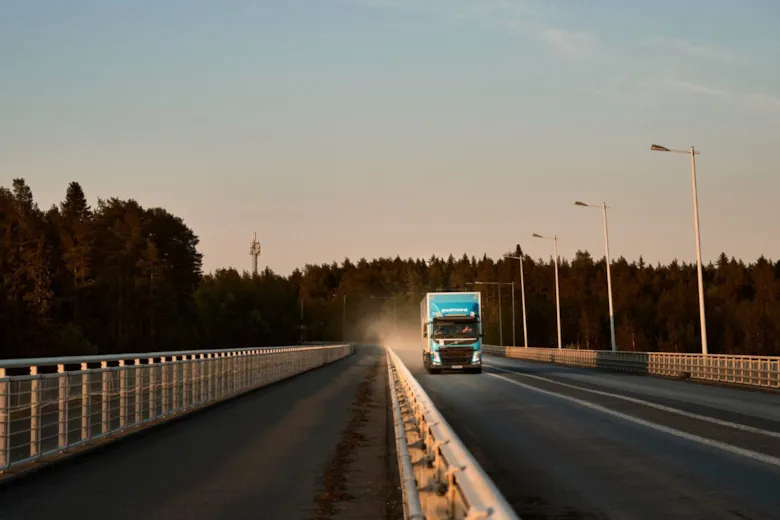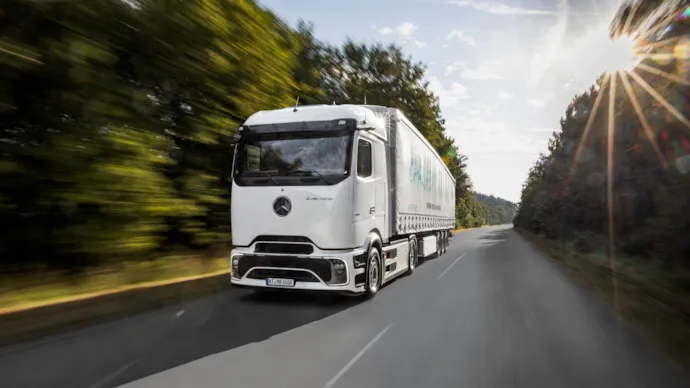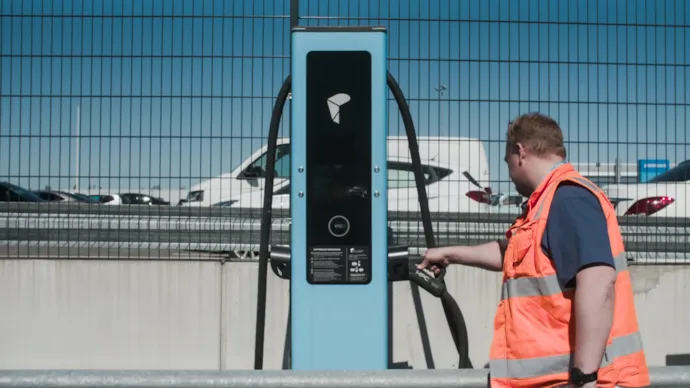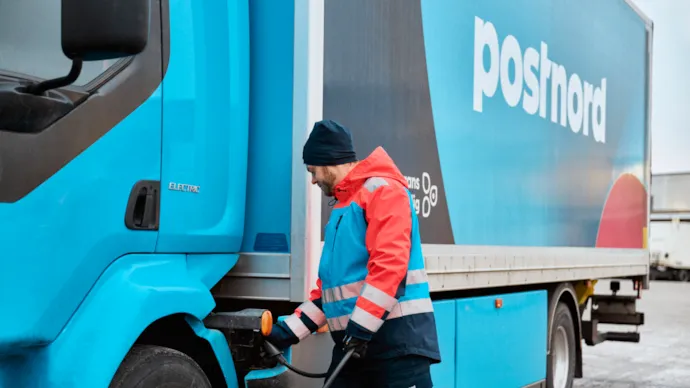PostNord trials groundbreaking megawatt charging
While electric vehicles have made significant progress in short-range urban deliveries, electrifying long-haul, heavy-duty trucks remains challenging.
Unlike last-mile deliveries, long-haul transport requires vehicles that can carry heavy loads over long distances, posing technological and infrastructural hurdles.
For PostNord, finding a solution is not just a goal – it is a necessity. With funding from Horizon Europe and in collaboration with Finnish university Teknologian Tutkimuskeskus VTT Oy and several leading charging companies, the MACBETH project represents a crucial step in PostNord’s transition to electric long-haul transport. It is also part of PostNord’s target to achieve fossil-free operations by 2030.
“Through programs like Horizon Europe, the EU provides money for research and innovation projects within sustainability”, says Mie Munck Bielefeldt, Commercial Sustainability Manager at PostNord Denmark. “We have been trying to position PostNord as an interesting partner for whoever was already seeking this money. The aim is to test new technologies within sustainability and support PostNord’s green agenda.”
Test driving megawatt charging systems
Central to the MACBETH project is the development and installation of megawatt charging systems (MCS), a new technology that can charge electric vehicles at a very high rate. Despite technological strides, significant challenges still need to be addressed before fully implementing such systems on a large scale.
The project will see the installation and testing of MCS at strategic locations in the Nordics, primarily within heavy vehicle charging infrastructure in Sweden, as an addition to the semi-public charging facilities at PostNord’s own terminals. In collaboration with VTT, which is responsible for developing the technology, PostNord will help test the viability of these chargers over a three-year period, providing crucial insights into how heavy-duty trucks can utilize public charging infrastructure.
“What we hope to get out of the project, besides the validation and testing of the new technology, is research and studies showing the public grid’s ability to support megawatt charging, also in very cold conditions such as in northern Scandinavia”, says Mie. “We will be collaborating and sharing data to produce final public research that will not only help Denmark but any company or country in Europe willing to develop megawatt charging.”
Several leading charging companies will build the public charging infrastructure, while PostNord will provide the trucks for testing. From early 2025, PostNord Denmark will have its first five electric trucks in operation, with one designated for selected routes within the project.
“We will have one of the trucks running on these selected routes and, in exchange, get electricity cheaply in these specific locations. We believe this is going to build some momentum for switching to electric vehicles, which is what we need to do to reach our 2030 goal”, says Mie.
Data-driven insights
The data from PostNord will be crucial for evaluating the MCS's performance and advancing its development. It will provide insights into how electric vehicles perform in cold weather, impacting battery range and charging time. This information will aid the EU and other partners in implementing megawatt charging on a larger scale.
“The plan is to drive the trucks to either Norway or Finland, and then share the knowledge of how they work in winter when it is really cold, and how it works when the weather is better”, says Christian Nordling, Director Health, Safety, Security & Environment at PostNord Denmark. “Then you have all this data shared into the EU as learning points that will help build the infrastructure in the future.”
The future of long-haul transport
For PostNord, proving the feasibility of electrifying long-distance transport is critical. If successful, the MACBETH project could significantly contribute to the company’s goal of achieving fossil-free operations by 2030.
“It is very important for PostNord to prove that it is possible to electrify long-distance transport. If we succeed with this project to do these long-distance trips electrically, then there is a way forward to electrifying the whole fleet”, says Christian.
Through the MACBETH project, PostNord is not only advancing its sustainability goals but also paving the way for greener long-haul transport across Europe. Christian’s ambition is to show that electrification is both possible and viable for others to adopt in the near future. “My plan is to show that this business case is good and to accelerate electrification.”


Read more

PostNord Finland tests the boundaries of electric trucks
Across the Nordics, electric vans are being have already been successfully deployed as part of PostNord’s efforts to reduce environmental climate impact. In Finland, a significant step towards achieving the climate goals is being taken with an ambitious pilot project aimed at testing and introducing electric heavy-duty trucks.

New “super charger” powers PostNord Finland’s green transition
Electrification of the vehicle fleet is crucial to PostNord’s green transition, but without adequate charging infrastructure, the climate targets remain out of reach. The installation of the new fast charger in Finland marks a significant step in overcoming this challenge.

Electrifying heavy transport: PostNord’s journey to fossil freedom
Heavy transport plays a central role in PostNord’s logistics and delivery operations. It makes it possible to move large quantities of goods over long distances, meeting the demands of both business and individual customers.

We manifest climate leadership
Climate change is one of the greatest challenges of our time. The transportation sector accounts for a major share of global greenhouse gas emissions. As a leading player in logistics in the Nordics, it’s up to us to take the lead in the industry’s climate transition.